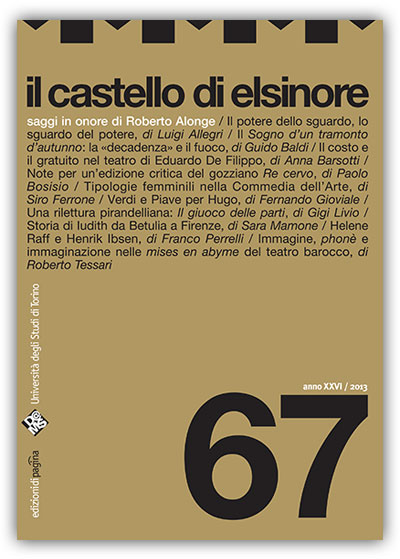Il costo e il gratuito nel teatro di Eduardo De Filippo: "Non ti pago", "Filumena Marturano", "L’arte della commedia"
Abstract
The theme of cost and free runs through Eduardo De Filippo’s plays as one of the red threads it is woven with, with different fineness and weaves but always semantically pregnant. The three aforesaid plays belong to three different stages in Eduardo De Filippo’s intensive career as a playwright – Non ti pago! (1940), Filumena Marturano (1946), L’arte della commedia (1961) –, from the “Cantata dei giorni pari” to the “Cantata dei giorni dispari”. So, they also offer an opportunity to explore the dimensions of a theme that, under the (not negligible) cloak of a financial transaction, embodies anthropological, ethical and symbolical values: from the title line in Non ti pago (“I won’t pay you”), hinting at the typical Neapolitan dream-trading custom that is the lottery, to the climaxing line in Filumena (“Children are not for sale”), which expresses the universal feel of a Medea the other way around, through to the prepaid expulsion order, which is decorously turned down by Campese, the actor-manager who engages the short-sighted Authority (both ancient and modern) in a fight by “coups de theatre” that create havoc and call for the endorsement not just of the art of comedy, but of the very value of culture as well.


